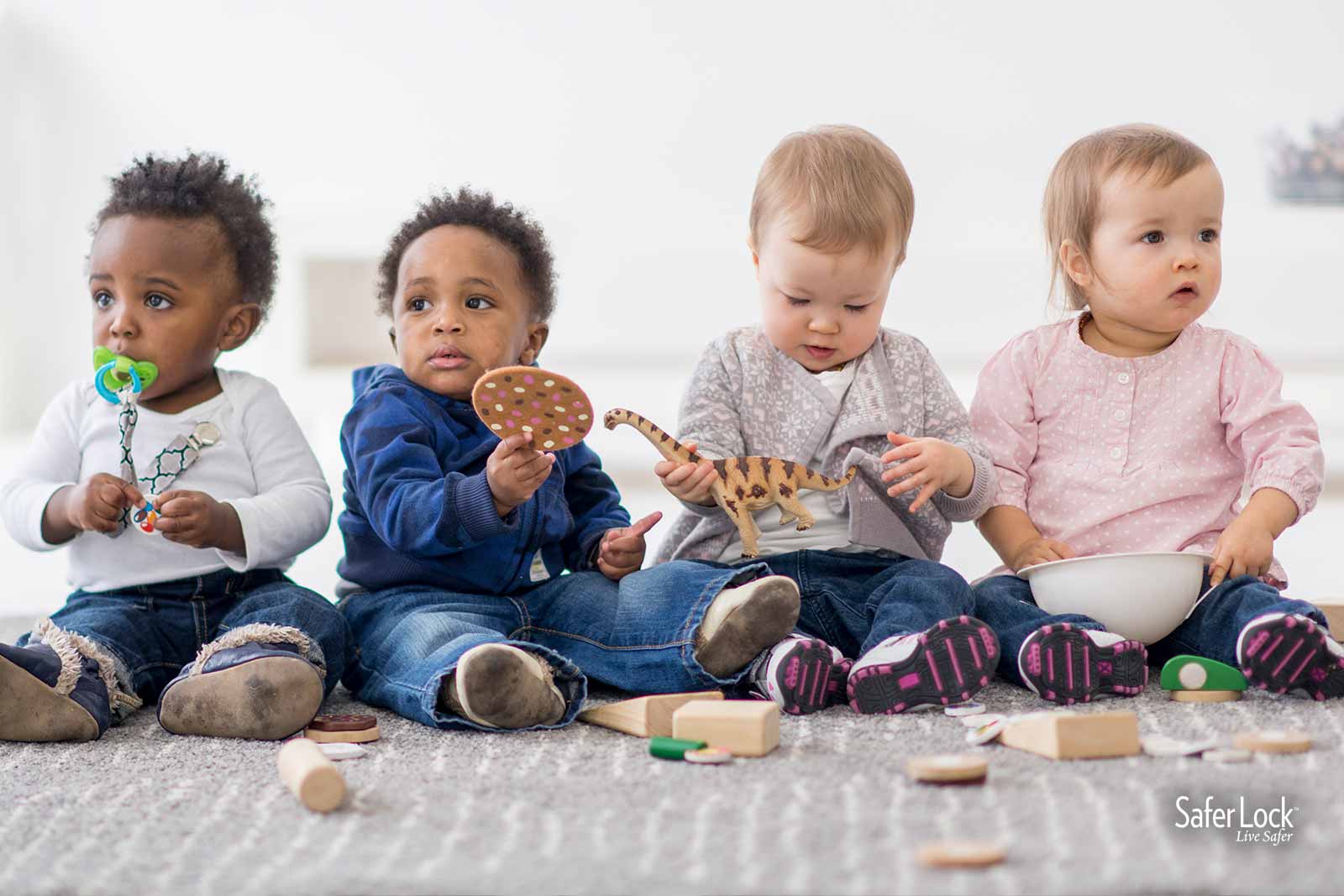The holidays are often a time of joy. We gather with friends and loved ones and celebrate what we hold dear. Unfortunately, the holidays can also bring some added safety risks, both in and out of your home. Luckily, with some knowledge and preparation, you can help protect your children and family from these risks and ensure safe, happy holidays.
Keep reading for some of the biggest risks and tips to prevent accidents at home this holiday season.
Prevent Holiday Fires and Burns
Holiday decorating can include twinkle lights, festive candles, and fresh-cut trees with plenty of trimmings. Lovely as these seasonal decorations may be, they also bring with them the added risk of fires, electric shocks, and burns.
Each year, nearly 156,000 fires in the United States occur during the winter holiday season, resulting in the loss of 630 lives, causing 2,600 injuries, and responsible for $936 million in property damage.
While we often think this sort of disaster won’t happen to us, this terrifying video demonstrates how quickly a dry Christmas tree —and the house around it—can go up in flames.
Tips to prevent holiday fires and burns
- Never use lighted candles near trees, boughs, curtains, drapes, or flammable items.
- Keep decorative candles, lighters, and matches away from children.
- Always extinguish candles before leaving the home or going to bed at night.
- When displaying natural trees, cut a few inches off the trunk and place it in a sturdy stand that holds water.
- Keep trees well watered to prevent drying out.
- Choose artificial trees labeled as fire-resistant.
- Use no more than three light sets on any one extension cord.
- Avoid overloading outlets with adapters; use surge protectors and outlet extenders sparingly.
Prevent Accidental Medicine Poisoning
Did you know that medications are the leading cause of child poisoning? Young children are naturally curious, and many medications look and taste like candy. Small babies and toddlers explore their surroundings by putting objects in their mouths. And even older kids can run the risk of taking the wrong medication or the wrong dose.
Opioids are the leading cause of accidental child poisoning deaths. All it takes is one pill to fall to the floor or a prescription bottle to be opened by a curious toddler to lead to a tragic outcome.
When it comes to medication poisoning, the biggest risks to your children can be found right at home. In 86% of emergency department visits for medicine poisoning, the child got into medicine belonging to a parent or grandparent.
During the holidays, as you travel with your children into the homes of friends and family members or welcome guests into your own home, it’s crucial to be aware of the dangers medicines pose to children.
Tips to prevent accidental medicine poisoning
- Put all medicine (prescription and over-the-counter) up, away, and out of sight.
- Secure prescription drugs that can lead to fatal overdoses, such as opioids, in a medicine lockbox for added security.
- Look for medication in purses, bathrooms, nightstands, or bedside tables. In 2 out of 3 emergency room visits for medicine poisoning, the medicine was left within reach of a child. If medications must be left inside purses or bags, place the bag in a high location.
- Save the Poison Help line on your cell phone: 1-800-222-1222. Display the toll-free number for the Poison Control Center in your home.
Prevent Toy and Battery Injuries
You spend plenty of time shopping for the perfect toy before wrapping it with care and attention. But what if that “perfect” toy leads to a preventable injury? Some toy injuries can even be fatal, like choking on small parts and accessories or ingesting button batteries.
Button batteries are found in everything from greeting cards to remote controls, toys, cameras, watches, talking books, and games. These lithium coin-sized batteries can burn through a child’s esophagus in two hours, leading to life-threatening complications.
The number of battery-related emergency department visits has increased dramatically over the last decade, particularly for children aged five and under.
Every 75 minutes in the United States, a child visits an emergency department for a battery-related injury.
Tips to prevent toy and battery injuries
- Choose age-appropriate toys.
- Never leave batteries sitting out. Store them out of sight and out of reach of children.
- Check household devices to ensure battery compartments stay shut.
- Choose children’s toys with battery compartments that need a screwdriver or tool to open.
- If a battery is swallowed, immediately call the National Battery Ingestion Hotline at 800-498-8666 (or 202-625-3333).
- Prompt action is critical, even if there is no choking.
- Don’t let your child eat or drink anything until after x-rays have been taken.
Prevent Vehicle Injuries
Holiday parties can lead to more inebriated drivers on the road. The number of DUI-related traffic stops increases by 33% on Christmas Eve. Road injuries are the leading cause of preventable deaths and injuries to children in the U.S. The best way to keep children safe in a car is to use the right car seat; correctly installed car seats can reduce the risk of death in an auto accident by as much as 71%.
Tips to prevent vehicle injuries
- Don’t drink and drive. Use a car service, rideshare, or designated driver for holiday parties.
- Watch out for distracted drivers and parking lots that are busier than normal.
- Don’t text and drive. Put your phone away when you’re in the car.
- Use the right car seat for your child’s age/ size.
- Babies should be rear-facing as long as possible until age 2.
- Check that your car seat is installed correctly.
- Ensure the harness fits properly to protect your child best.
- Make sure older children and adults wear a seatbelt every time.
The holidays bring added risks from both inside and outside of your home. But with some knowledge and diligence, you can be sure you and your family have a safe and happy holiday season.



